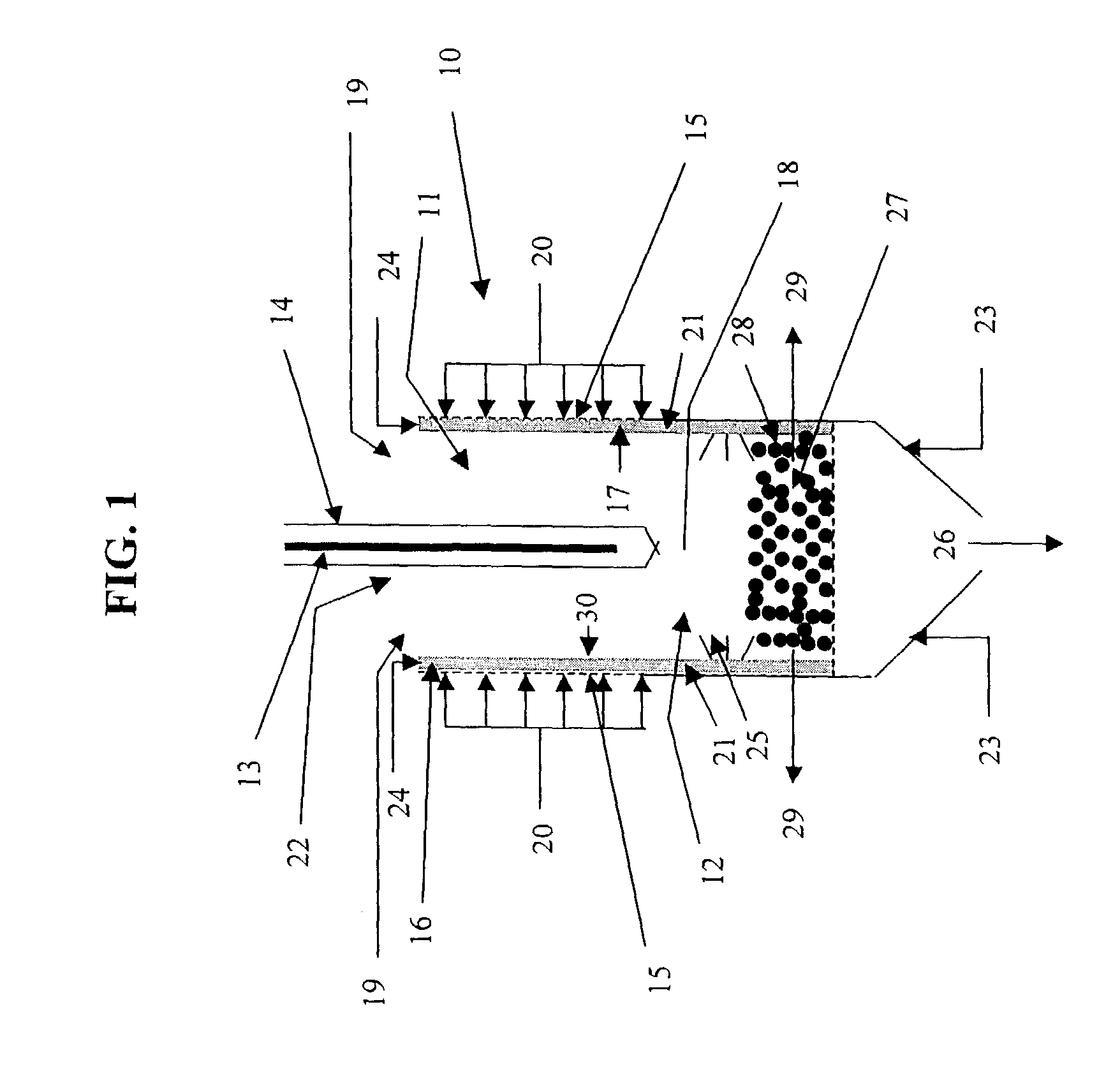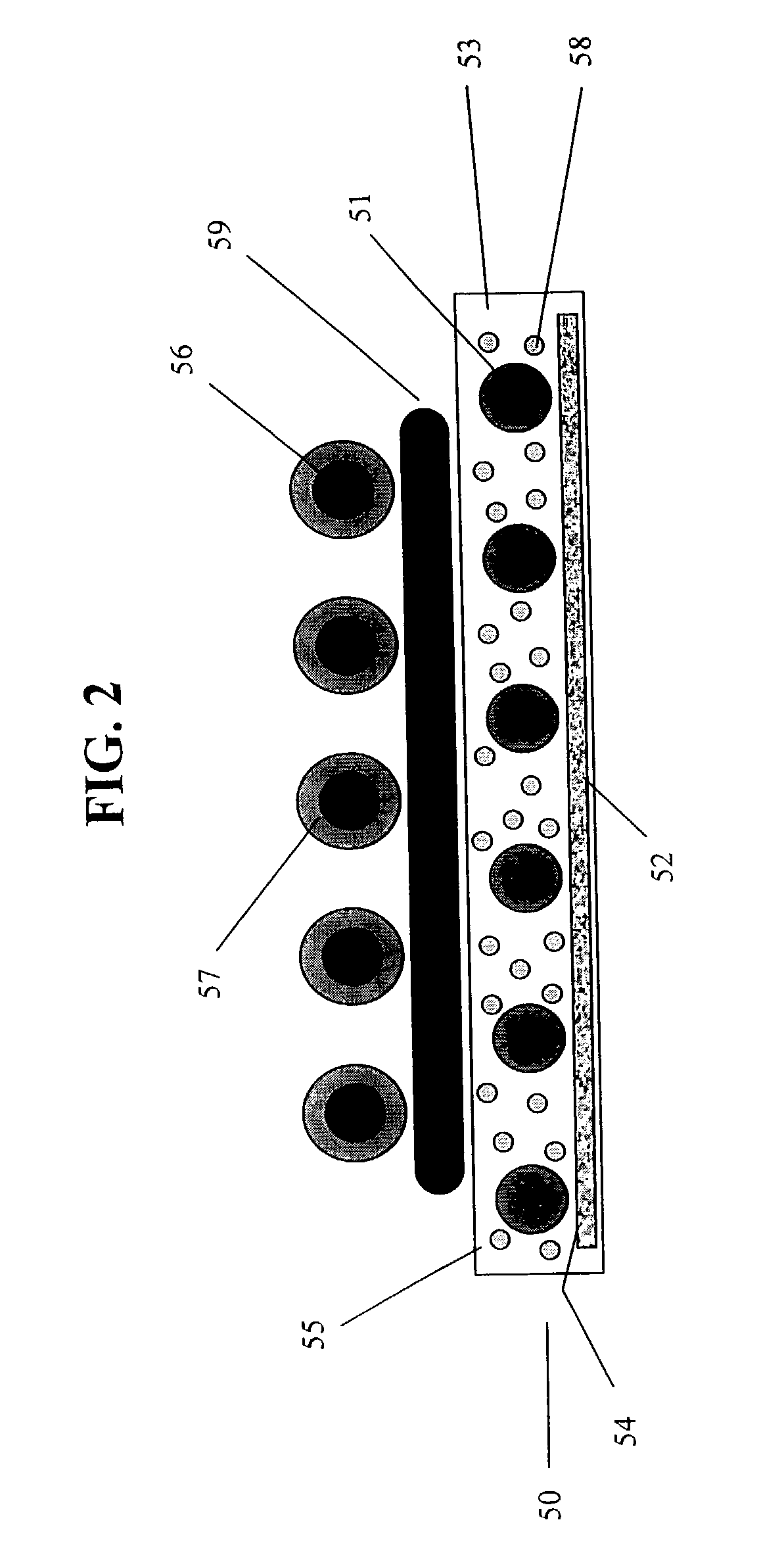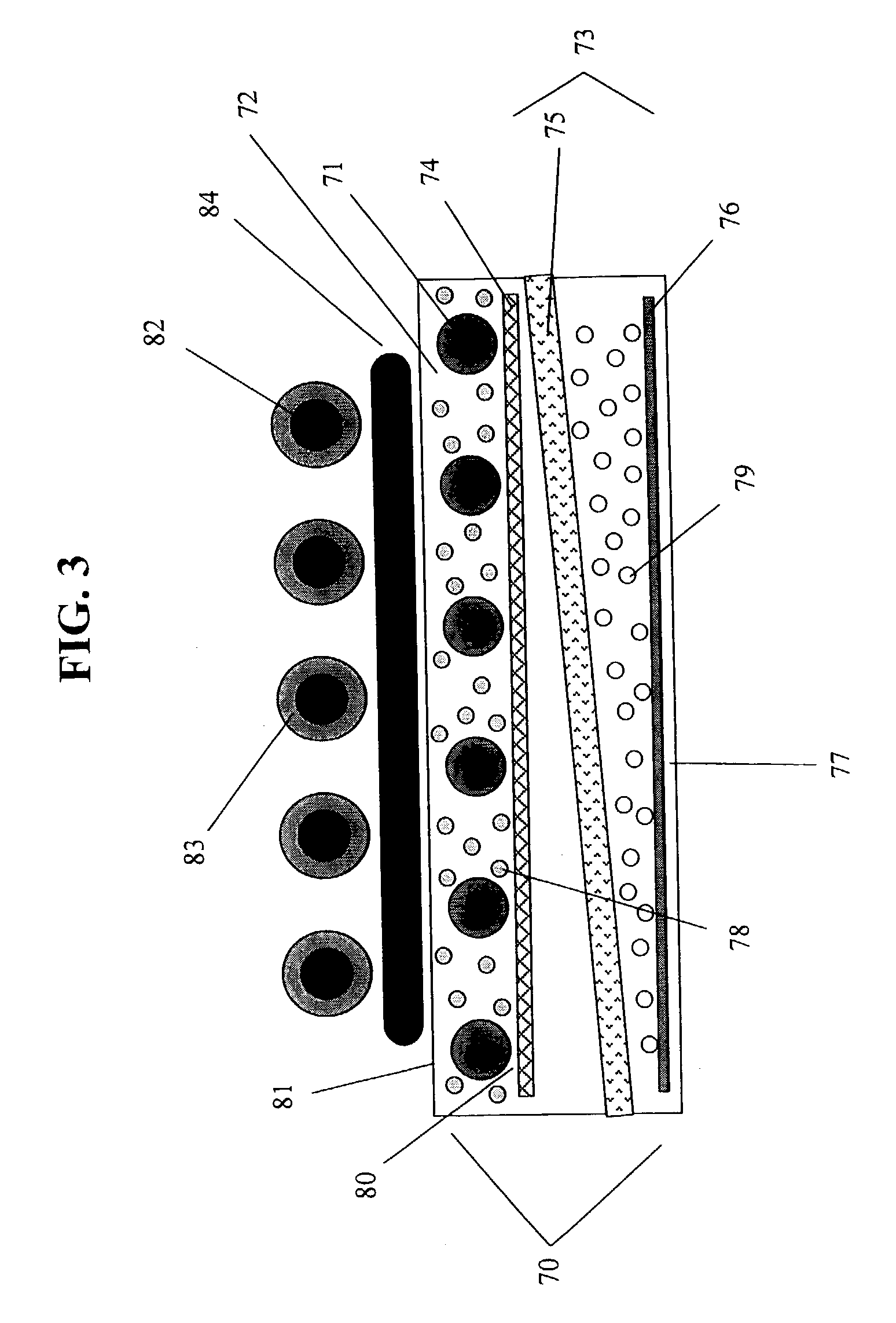Processes and apparatuses for treating halogen-containing gases
- Summary
- Abstract
- Description
- Claims
- Application Information
AI Technical Summary
Benefits of technology
Problems solved by technology
Method used
Image
Examples
example 1
[0121] A treatment gas containing 1000 ppm F.sub.2 in N.sub.2 background gas was mixed with various H.sub.2 streams (at a 1:1 H.sub.2:F.sub.2 molar ratio and a 2:1 H.sub.2:F.sub.2 molar ratio). The treatment gas and H.sub.2 were supplied at ambient temperature and pressure. The resulting feed gas mixtures were introduced into the annular gap of a silent discharge plasma reactor having a configuration as shown in FIG. 4. A non-thermal plasma was generated in the feed gas mixtures with AC voltages having different frequencies applied to the high voltage electrode (400 Hz, 200 Hz and 100 Hz). The reactor temperature ranged from 30-35.degree. C. The resulting amount of F.sub.2 in the exhaust gas stream and energy required is shown in the graph of FIG. 6.
example 2
[0122] Treatment gases containing 4000, 2000, or 1000 ppm F.sub.2 in N.sub.2 background gas were mixed an H.sub.2 stream at a 2:1 H.sub.2:F.sub.2 molar ratio. The treatment gas and H.sub.2 were supplied at ambient temperature and pressure. The resulting feed gas mixtures were introduced into the annular gap of a silent discharge plasma reactor having a configuration as shown in FIG. 4. A non-thermal plasma was generated in the feed gas mixtures with a 200 Hz AC voltage applied to the high voltage electrode. The reactor temperature ranged from 30-35.degree. C. The resulting amount of F.sub.2 in the exhaust gas stream and energy required is shown in the graph of FIG. 7.
PUM
 Login to View More
Login to View More Abstract
Description
Claims
Application Information
 Login to View More
Login to View More - R&D
- Intellectual Property
- Life Sciences
- Materials
- Tech Scout
- Unparalleled Data Quality
- Higher Quality Content
- 60% Fewer Hallucinations
Browse by: Latest US Patents, China's latest patents, Technical Efficacy Thesaurus, Application Domain, Technology Topic, Popular Technical Reports.
© 2025 PatSnap. All rights reserved.Legal|Privacy policy|Modern Slavery Act Transparency Statement|Sitemap|About US| Contact US: help@patsnap.com



